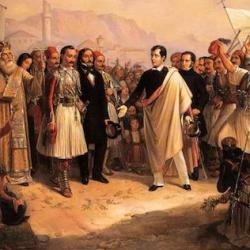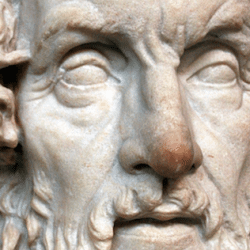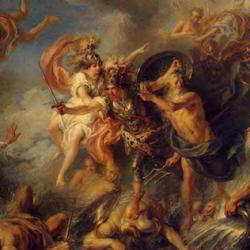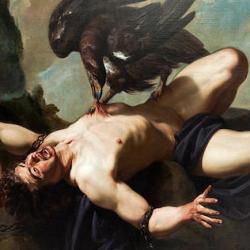I believe that some time ago I made the connection between Derrida’s “supplement at the origin,” tragedy, and conceptions of the relation of nature and culture. In some systems of thought, culture is a “supplement” to nature and participates in all the problems that Derrida brings out with supplementarity. That connection comes out quite explicitly in some Roman poets of the Augustan age, Horace and Virgil. In his 16th Epode, Horace speaks of the “Blessed Fields and Wealthy Isles” where the golden age continues into the present. Those islands are lands of fruitfulness, but not of cultivation:
where every year the land unploughed gives grain,
and vines unpruned are never out of flower,
and olive shoots unfailing bud, and set their fruit,
and dusky fig ungrafted graces its own tree.
The key thing for my purposes is that this idyllic location is idyllic precisely because it is pure nature, without the interruption of human work.
Virgil says something very similar in his famous Fourth Eclogue (the so-called “Messianic Eclogue”). Virgil writes of a child whose birth will be the birth of a new golden age. At first, while the child is still young, the golden age will come only in part, but as the child grows and reaches manhood, things will begin to improve. When he assumes full humanity, not only war but commerce and farming will cease:
when the years have confirmed you in full manhood,
Traders will retire from the sea, from the pine-built vessels
They used for commerce: every land will be self-supporting.
The soil will need no harrowing, the vine no pruning-knife;
And the tough ploughman may at least unyoke his oxen.
We shall stop treating wool with artificial dyes,
For the ram himself in his pasture will change his fleece’s colour,
Now to a charming purple, now to a saffron hue,
And grazing lambs will dress themselves in coats of scarlet.













